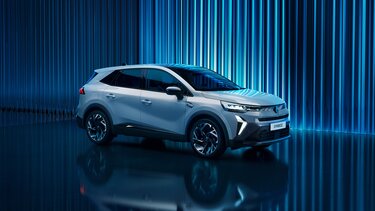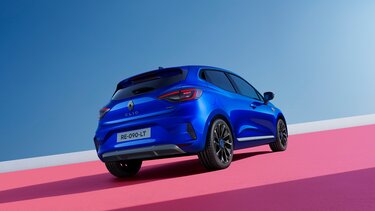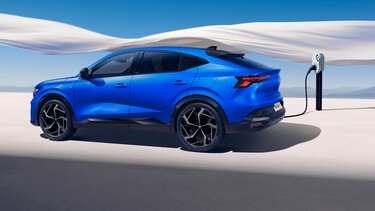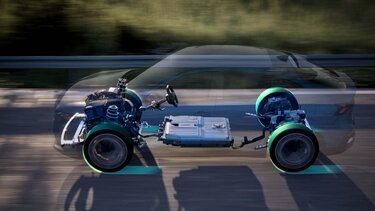Should you buy a hybrid car? Pros and cons explained
14/10/2025
So, you’re thinking about buying a hybrid. You’ve heard they’re good on fuel and easier on the wallet than petrol or diesel alone. But are they really the best of both worlds – or just a stopgap between old tech and full electric?
Let’s clear the air. Hybrid cars, in all their forms, are undeniably clever. They blend combustion engines with electric motors to deliver lower exhaust pipe emissions, better fuel efficiency and, in some cases, surprisingly brisk performance. But before you take the plunge, it’s worth weighing up whether a hybrid really suits your lifestyle – or if a full EV or even a good old efficient petrol model might be a better fit.
Here’s everything you need to know about self-charging hybrid cars, explained in plain English, with a healthy dose of scepticism and a nod to real-world driving.
What is a hybrid car?
Let’s start with the basics: what is a hybrid car? In simple terms, a hybrid combines a traditional petrol (or occasionally diesel) engine with one or more electric motors. The battery and motor assist the engine, helping it use less fuel and emit fewer harmful gases.
There are three main types of hybrid cars on the market today:
Mild hybrids
The least electrified of the bunch. These use a small electric motor to support the engine, especially under acceleration, but you can’t drive on electric power alone.

Full hybrids
These can drive short distances using electric power alone, usually at low speeds. You don’t plug them in; they recharge themselves via regenerative braking. They’re at their most efficient when driving around town where the ebb and flow of traffic helps to recharge the battery via the brakes.

Plug-in hybrids (PHEVs)
These offer a much bigger battery and can drive up to 65 miles on electric power alone1. You’ll need to plug them in to get the best from them – but when you do, it's the best of both worlds. That EV range should cover most daily commutes and you can fuel up for long distances without pressure to plug in.

The pros: why buy a hybrid car?
Fuel efficiency and lower running costs
This is the big one. Hybrids, especially in stop-start traffic, are incredibly frugal. The self-charging electric motor takes the strain in slow-moving situations, allowing the engine to shut off entirely. With a Clio hybrid engine you'll get 67.3 mpg versus a Clio petrol with 54.3 mpg. You’ll notice the savings at the pumps.
Lower exhaust pipe emissions
Hybrids emit less exhaust pipe emissions and harmful particulates than traditional petrol cars. That means, in some cities, access to low emission zones without extra charges.
Electric power without any range anxiety
Plug-in hybrids can let you do your daily commute on electric power alone, without worrying about where the nearest charging station is. When the battery runs out, the engine kicks in, and off you go.
Government incentives
While incentives for hybrids aren’t as generous as they once were, you’ll still benefit from lower car tax, especially on company cars. Benefit-in-kind rates for plug-ins are particularly appealing if you’re a business driver.
Smooth and quieter driving experience
A hybrid car is great fun to drive. Thanks to the electric motor, hybrids tend to pull away quieter. At low speeds, they’re eerily quiet, and the switch between electric and petrol is seamless. Ideal for city dwellers and relaxed commuting.
Proven tech and reliability
Hybrid vehicle technology has been around for over two decades now – and it’s matured nicely. Many car brands that offer hybrids, including Renault, have refined their systems to the point where reliability is a strong suit.
The cons: where can hybrid cars fall short?
There are some compromises
Let’s be honest. A hybrid isn’t a full electric car. It’s a halfway house – and in some cases, with plug-in hybrids, that means you’re carrying around two systems: an engine and an electric motor. This means added weight. If you plan on keeping your electric battery charged, you may want to opt for an electric vehicle.
You still need to charge plug-ins
There are clear benefits to plugging in your PHEV regularly, but if If you don’t, you’ll burn through fuel faster than you’d expect. The battery’s weight becomes a hindrance once it’s empty – and you’re left with an engine dragging it around.
Boot space can suffer
Because hybrid systems need to store batteries and electric motors, boot space often takes a hit. This is especially true in plug-in models, where the battery sits under the floor or might eat into luggage room.
Longer trips? Not so electric
If you do a lot of motorway miles, you’ll spend most of your time running on petrol. The hybrid’s electric motor’s advantages are far more noticeable around town than out on the open road.
Higher upfront cost
Compared to an equivalent petrol model, hybrids are often pricier to buy. However, with fuel savings and tax perks factored in, that difference can balance out over time – especially if you can charge your plug-in hybrid at home.
Hybrid vs electric car: which should you choose?
Here’s where things get a bit more personal. If you mostly do short journeys and have off-street parking, a fully electric car might actually be the better long-term bet. Zero exhaust pipe emissions, lower running costs, and reduced maintenance could all be a real bonus.
But if you’re not quite ready to go all-electric – or you can’t easily charge at home – a hybrid offers an ideal stepping stone. You get many of the electric car benefits without having to completely change your habits.
And if you want the best of both worlds, a plug-in hybrid like the Renault Rafale hyper hybrid E-Tech could be ideal. It’s practical, smart-looking, full of the latest tech, and lets you dip your toe into electric driving without diving in headfirst.
Is it worth buying a hybrid in the UK?
For a lot of British drivers, yes, it can be worth buying a hybrid. With cleaner cities, stricter emissions rules, and increasingly expensive petrol, going hybrid makes absolute sense. You’ll slash your running costs and still enjoy the freedom of longer journeys.
They’re especially well-suited to suburban and urban driving, where regenerative braking and short bursts of EV running really shine. And with manufacturers like Renault offering innovative hybrid car tech via their E-Tech range, it’s clear that hybrids are no longer the tech of tomorrow – they’re very much the cars of today.
Final word: should you buy a hybrid?
If your driving is mostly town-based, and you’re not quite ready to go fully electric, then yes, a hybrid is worth a serious look. Just be honest about your usage. Don’t buy a plug-in and never charge it.
And if you’re shopping around, Renault’s current hybrid line-up offers something for just about everyone – from compact hatchbacks like the Clio to stylish SUV newcomers like the Rafale. There are even special offers to sweeten the deal.
So, should you buy a self-charging hybrid car? If you want lower exhaust pipe emissions, better fuel economy, and an easier transition to the electrified future, it might just be the smartest move you’ll make.
1 Based on techno esprit Alpine hyper hybrid 4x4 300 powertrain. WLTP figures shown are for comparability purposes only. Actual real-world driving results may vary depending on factors including the starting charge of the battery, accessories fitted after registration, weather conditions, driving styles and vehicle load.
This article is advertorial content reviewed by Renault prior to publication.
About the author
Steve is a leading UK automotive journalist, EV editor at The Independent, editor of Auto Express, Autocar and What Car?, and a global car awards judge and broadcaster.
get the latest Renault news







